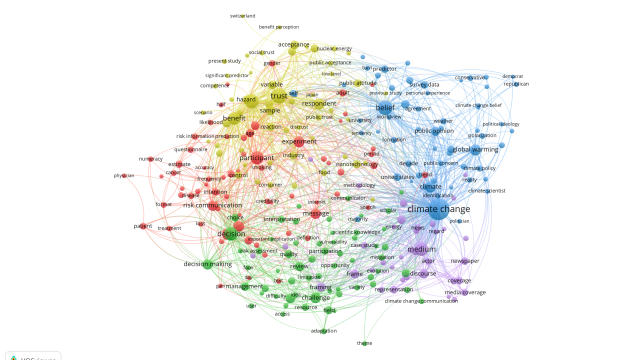Businesses are more ambitious than ever - so why are politicians going backwards on green?
The message from the private sector is clear: stronger sustainability frameworks bring clarity, competitiveness, and confidence.

In a time when political momentum around sustainability appears to be wavering, a new survey of over 2,500 European business leaders has delivered a clear and compelling message: businesses are not only ready for stronger sustainability rules, they’re asking for them.
Commissioned by the think tank E3G, the YouGov survey reveals that a majority of European businesses support more stringent environmental and social reporting requirements. Contrary to the narrative often heard in political circles, that sustainability obligations are burdensome red tape, business leaders are increasingly viewing these frameworks as essential tools for competitiveness, investment, and long-term resilience.
Business wants clarity – not deregulation
The findings come at a critical moment. The European Union is currently proposing to reduce reporting obligations by 25% for large private firms and 35% for small and medium-sized enterprises (SMEs). This is part of a broader effort to simplify ESG-related due diligence and reporting frameworks under a legislative package known as “Omnibus 1.” As a result, the scope of the Corporate Sustainability Reporting Directive (CSRD) has been narrowed, and companies have been granted up to two additional years to prepare their first reports.
Yet the survey shows that many businesses want to go further, not pull back. Nearly two-thirds (63%) of respondents believe that large companies should be required to implement transition plans toward a greener future. Almost one-third argue that companies with 250 or more employees should be subject to CSRD reporting, far below the 1,000-employee threshold currently proposed by the European Commission.
This appetite for stronger sustainability frameworks is not just about compliance. It’s about clarity, competitiveness, and confidence. Nearly half of the surveyed businesses (48%) say that legal uncertainty around sustainability reporting is delaying investment decisions. Among larger firms, that figure jumps to 63%. Meanwhile, more than half (55%) of respondents believe that sustainability can be a competitive differentiator, and 68% of large businesses say that better data collection through sustainability reporting will help attract investment.
An appetite for ambition
These findings challenge the assumption that businesses are resistant to sustainability obligations. As Jurei Yada, Director and Head of EU Sustainable Finance at E3G, puts it: “Policymakers are operating under the false assumption that businesses want to get rid of sustainability obligations. This survey blows that narrative out of the water. European businesses don’t see sustainability as red tape or a box-ticking exercise but a genuine driver of competitiveness, and an area where businesses and EU policymakers should lead the charge globally.”
Indeed, the survey highlights how stronger EU due diligence rules could enhance regional competitiveness. Over half (53%) of respondents believe that such rules would encourage large companies to favour suppliers within the EU, while 48% agree that requiring companies to meet environmental and social standards would give Europe a competitive edge over China and the United States. Only 21% disagreed with this view.
“ Imagine a reporting framework that not only tracks emissions and resource use but also reflects the lived realities of farmers, factory workers, and community leaders in sourcing regions.”
Separate research from PwC reinforces these findings. More than two-thirds of companies that have enhanced their sustainability reporting say it has generated “moderate” or “significant” value beyond regulatory compliance. This suggests that sustainability is not just a moral imperative; it’s a strategic one. However, the political landscape tells a different story. As Jurei Yada puts it, “The current political horse-trading risks undermining the very framework that businesses are asking for.”
CSR through a community lens
This tension between simplification and ambition raises a fundamental question: who benefits from sustainability reporting, and whose voices are being heard in shaping these frameworks?
One underexplored dimension is how businesses might respond if they were to take the views of affected producers and communities into account. These are the people on the frontlines of supply chains, often in regions most vulnerable to climate change and environmental degradation. Their experiences and insights could offer valuable perspectives on the real-world impacts of corporate sustainability strategies.
Imagine a reporting framework that not only tracks emissions and resource use but also reflects the lived realities of farmers, factory workers, and community leaders in sourcing regions. How might businesses adapt their practices if they were accountable not just to investors and regulators, but also to the communities whose livelihoods are shaped by corporate decisions? Would they invest more in regenerative agriculture, fair wages, or local infrastructure? Would they rethink their sourcing strategies to prioritise resilience and equity?
Bringing these voices into the conversation could transform sustainability reporting from a compliance exercise into a tool for genuine accountability and systemic change. It would also align with the growing recognition that sustainability is not just about environmental metrics, but instead encompasses social justice, economic inclusion, and long-term wellbeing.
As the EU continues to refine its sustainability frameworks, it must listen carefully: not just to policymakers and investors, but to the businesses that are ready to lead, and to the communities whose futures depend on bold, inclusive action. The message from European business leaders is clear: they want more ambition, not less. Now is the time to deliver it.
- Ben Martin, GEC


